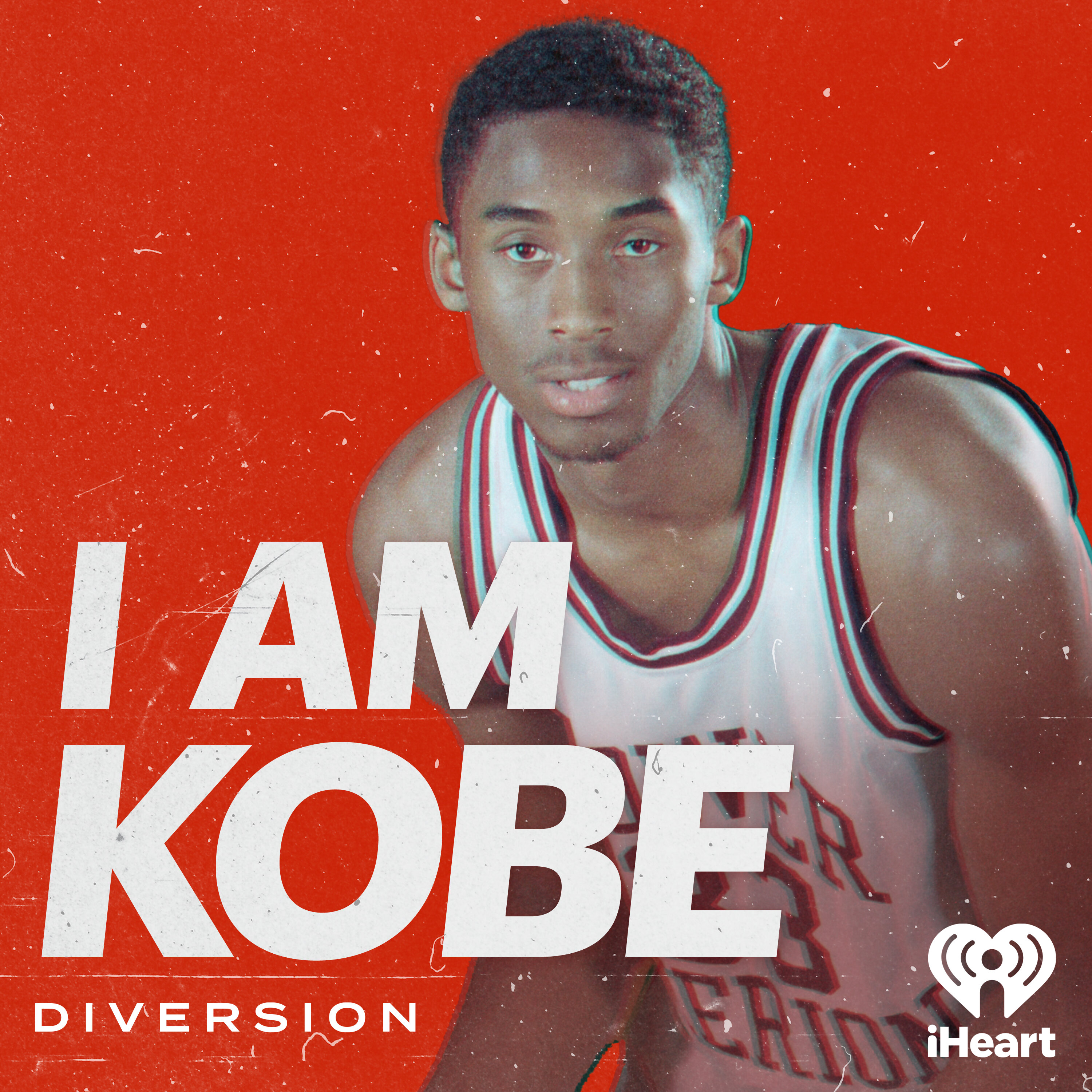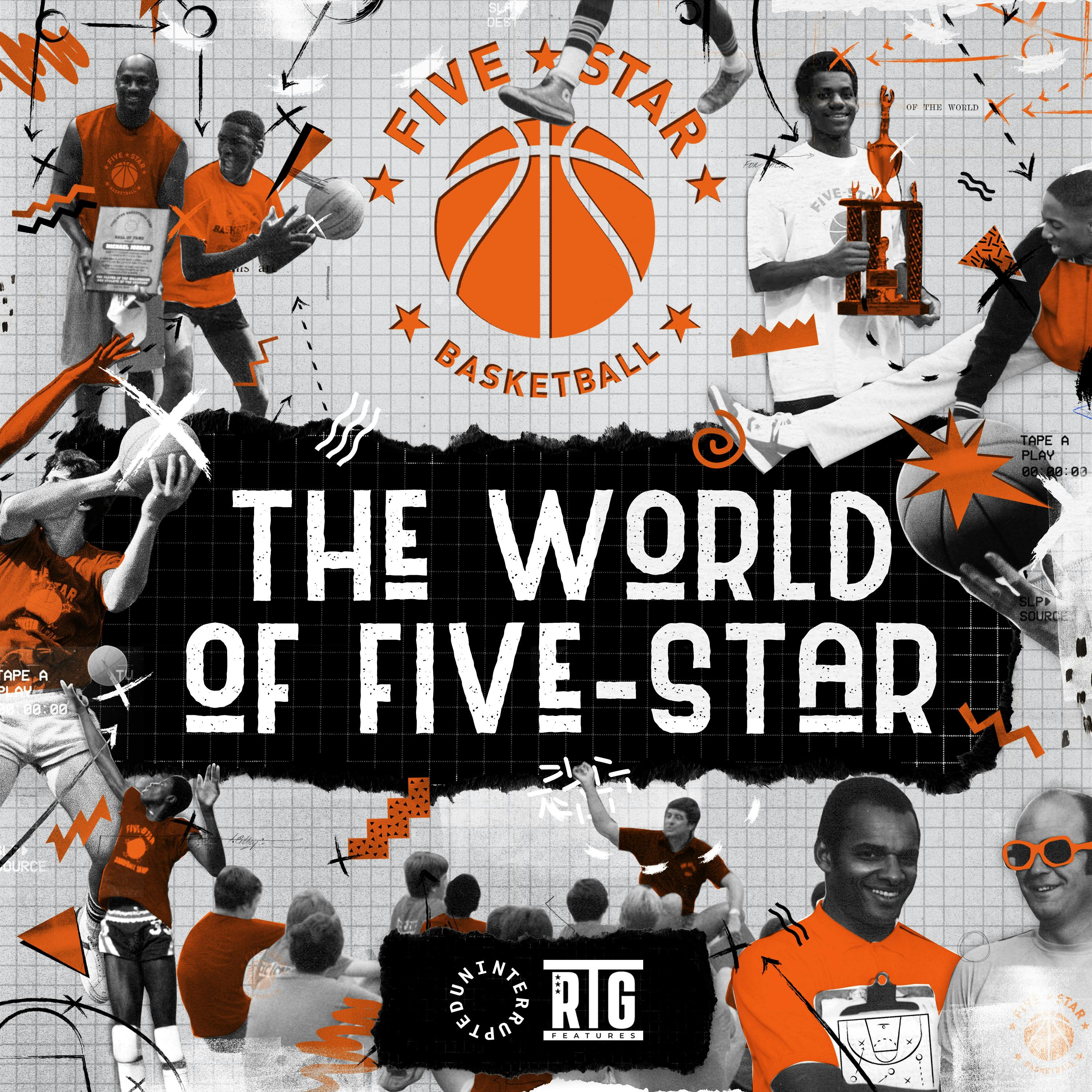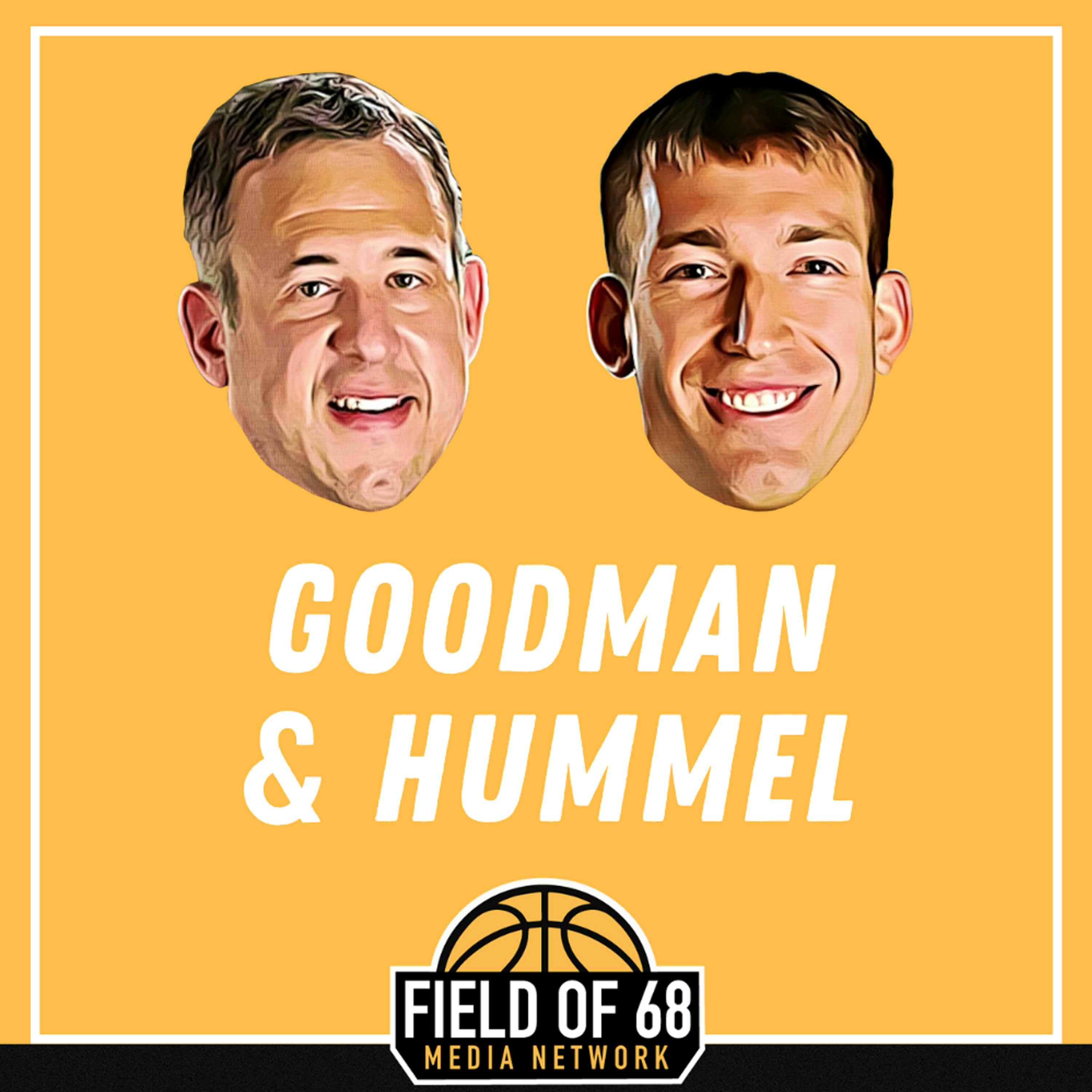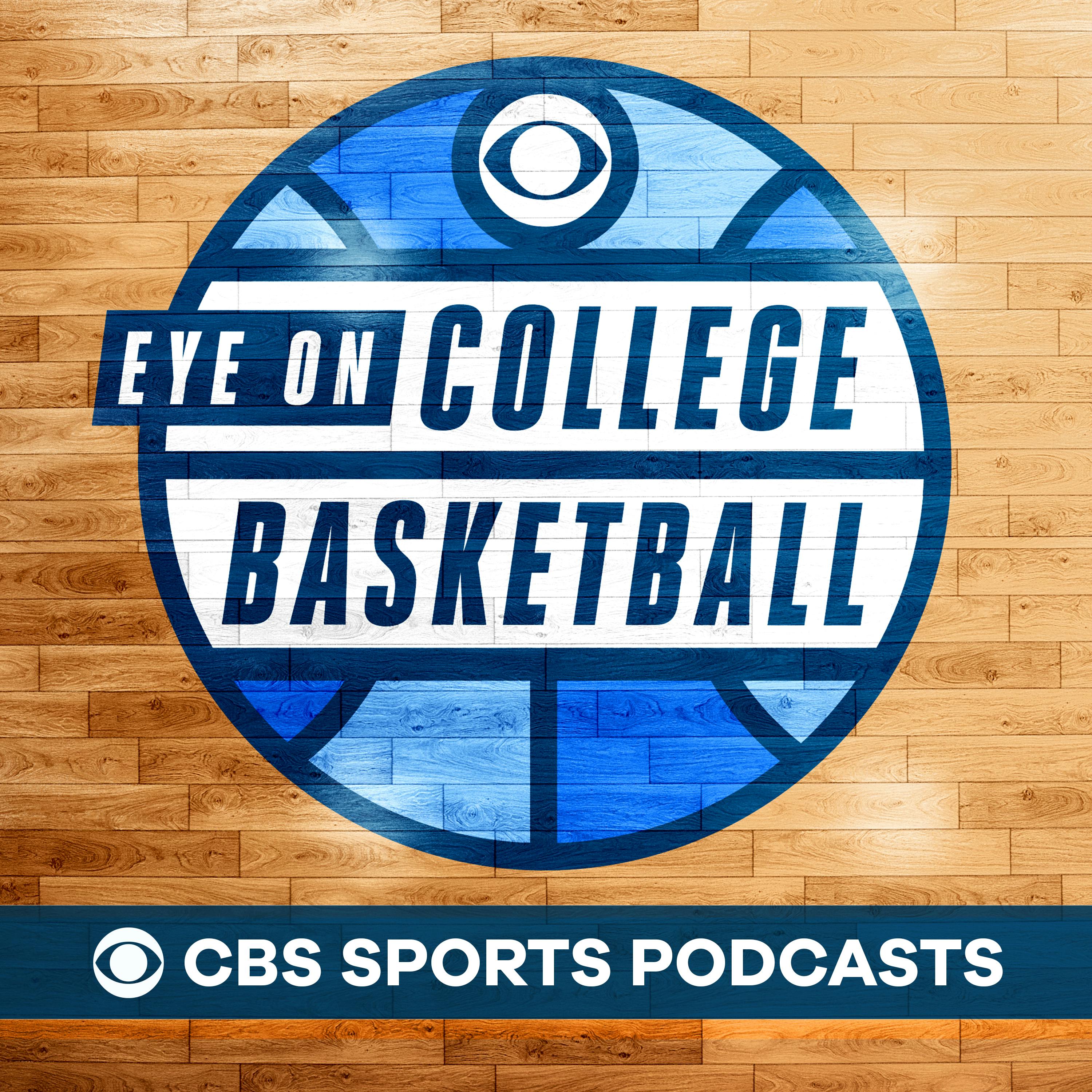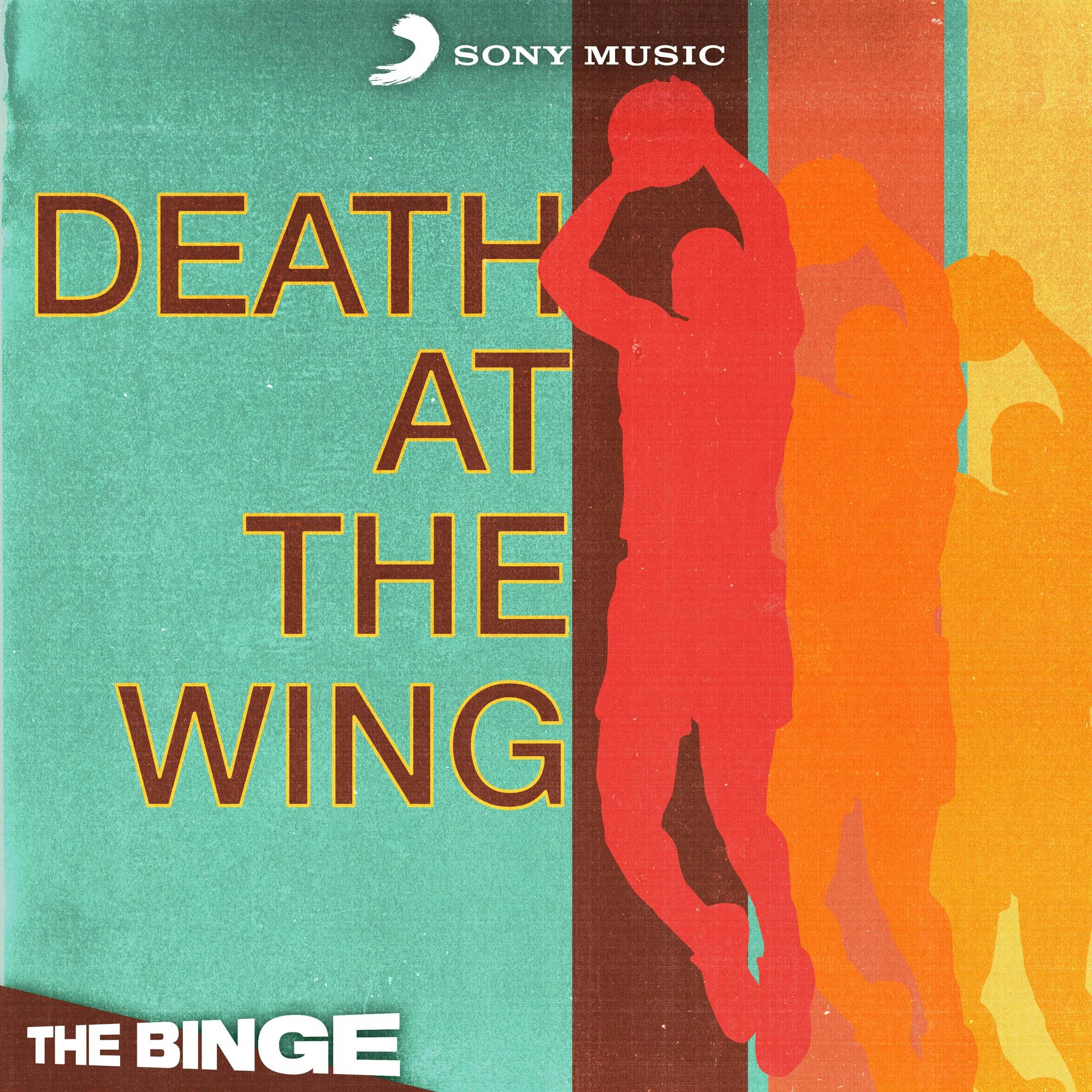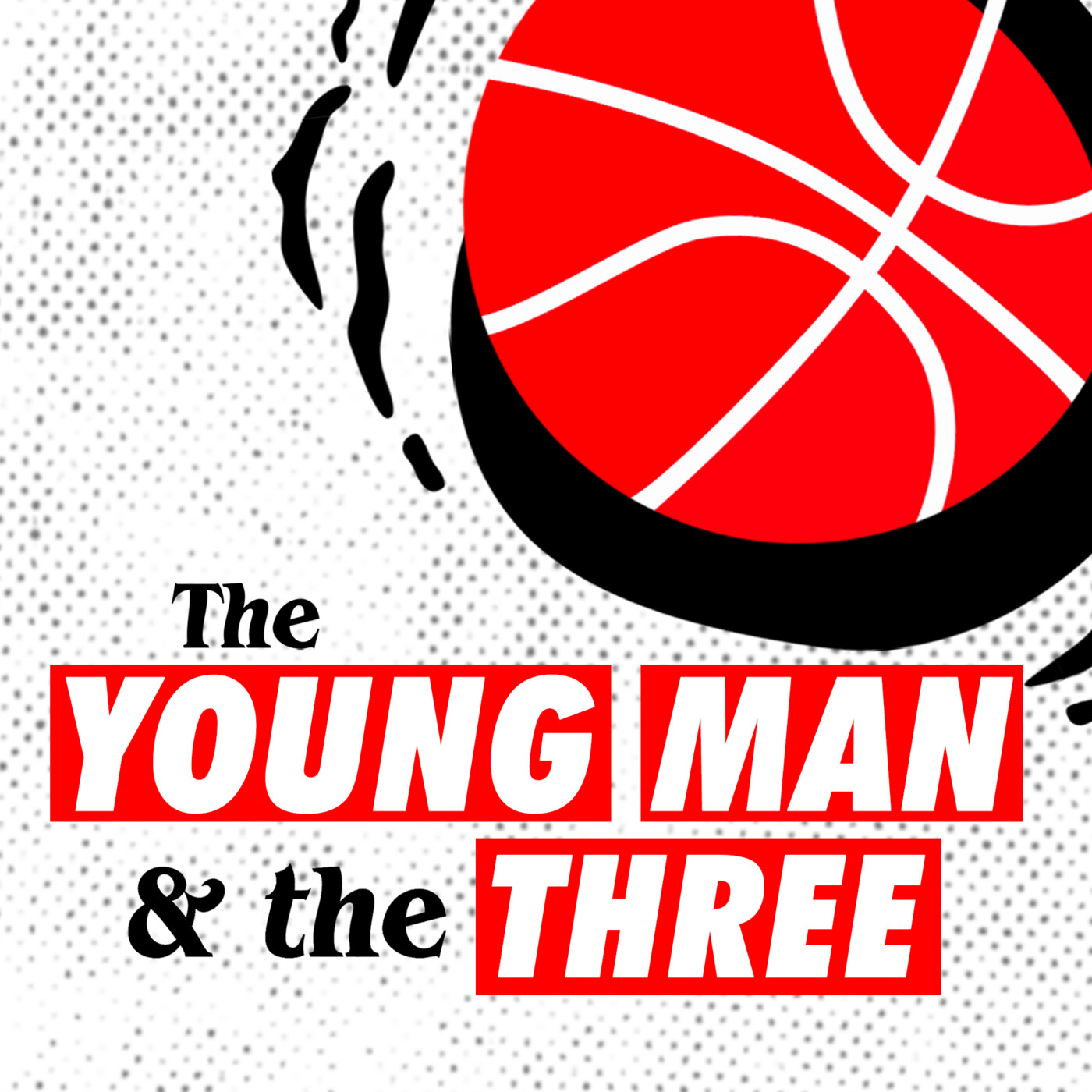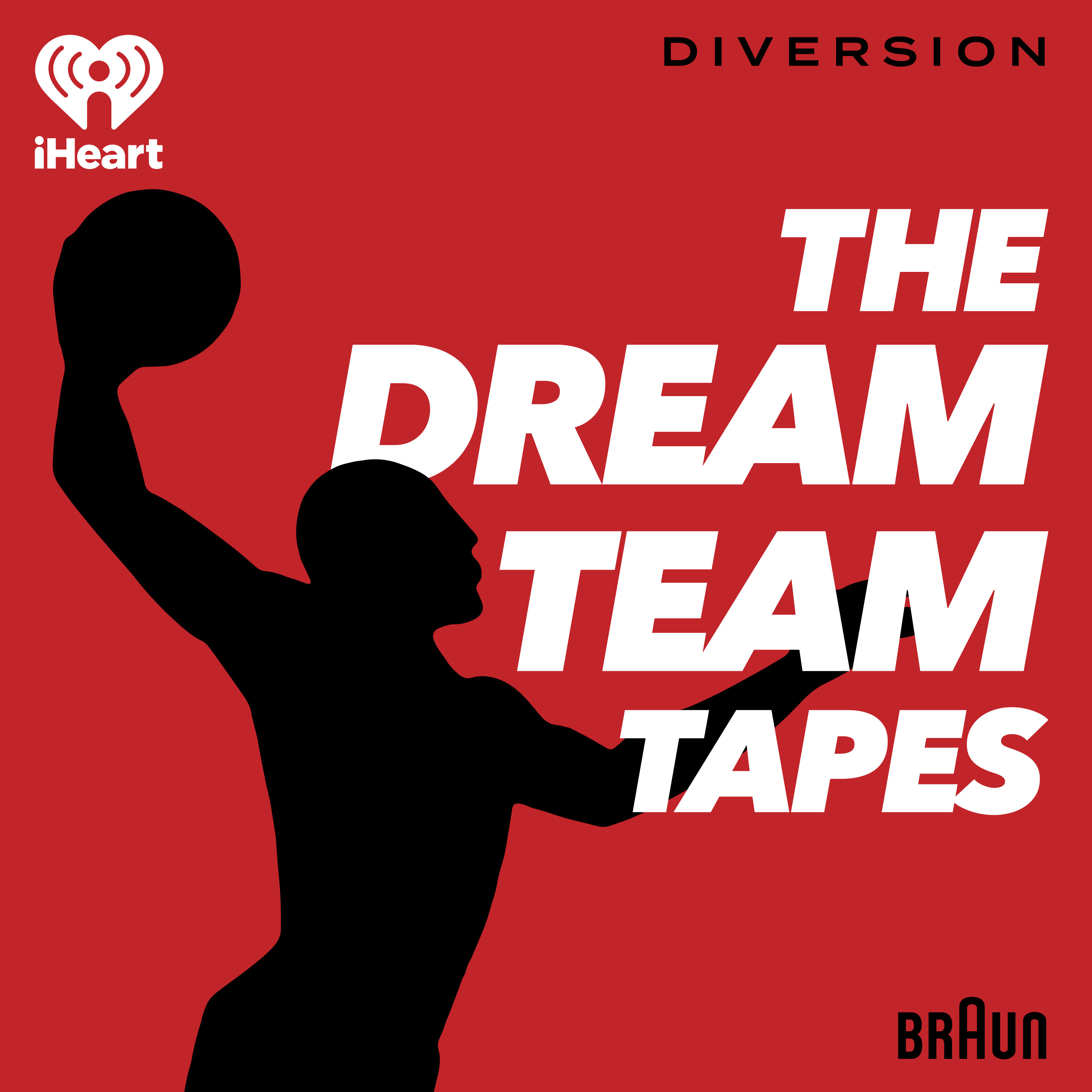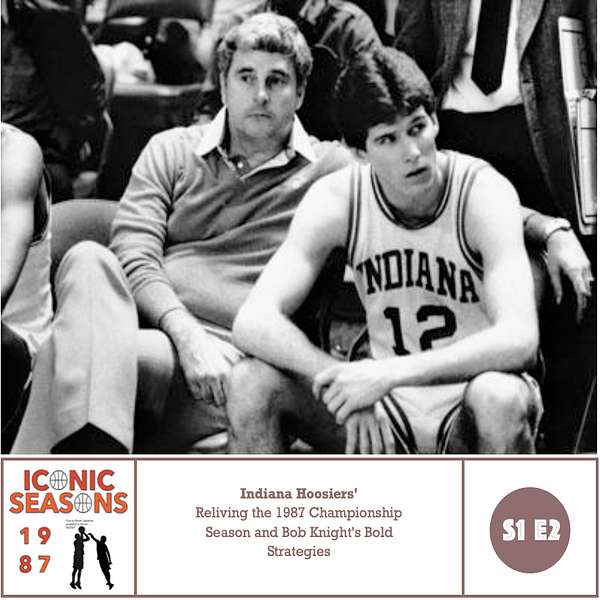
Iconic Seasons | Hardwood History | College Basketball
Iconic Seasons is a podcast that takes you back to the greatest college basketball seasons of all time. Through the voices of players, coaches, and journalists, we relive the excitement, the drama, and the unforgettable moments that made these moments and seasons iconic.
We use interviews, audio from the games, as well as scripted storytelling, to bring the past to life.
Whether you're a die-hard college basketball fan or just a casual observer, Iconic Seasons is a must-listen for anyone who loves basketball and basketball culture.
Iconic Seasons | Hardwood History | College Basketball
Indiana Hoosiers' Global Journey to Glory - Reliving the 1987 Championship Season and Bob Knight's Bold Strategies
Get ready for a deep dive into Indiana University Basketball’s triumphant 1987 Championship season, a journey that starts with the team's eye-opening 1985 international exhibition tour. From Toronto to Tokyo, Beijing, Hong Kong and Amsterdam, the Hoosiers experienced a unique bonding opportunity filled with fierce competition against national teams of Japan and Russia, cultural immersion and self-discovery. Join us as we dissect the essence of this expedition, made even more vivid by a captivating documentary that chronicled the team's experiences.
Stick around as we trace the path of redemption the team embarked on under the stewardship of the legendary Coach Bob Knight. We cover the team’s thrilling victories over Notre Dame, Iowa, and Michigan, setting the stage for a riveting NCAA tournament run fraught with surprises. We wrestle with the shock of Indiana’s defeat to Cleveland State, an unexpected twist of fate chronicled in John Feinstein's influential book, A Season on the Brink. Lastly, we examine Coach Knight’s bold decision to recruit transfer players, a move that was as controversial as it was transformative. So, buckle up and get ready to relive one of the most exhilarating periods in college basketball history.
Support the Pod or Binge the Entire Season Now!
Connect on Social
Let's talk about the trip to China. Do you want to talk about the trip to China? China trip to China is a lot more interesting than our schedule. I thought maybe we'd save that for some upcoming dates, but about that experience, the tour of the port is pretty well, let me. Do you want, we want to flip for it and see what we want to talk about? The schedule or China? No, well, I don't flip with your coins. Anyway, the coin says China, china. Okay, that was an interesting trip for you. I think that it's important to mention that a lot of the foundation for our season this year comes from that trip.
Speaker 2:Origin stories are counts or backstories that reveal how a character or a group of people became the protagonist or antagonist of a narrative. They added the overall interest and complexity of a story, often giving reasons for the character's motivations. They're a way for cultures and teams to explain their origins and to pass on their values to future generations. Indiana 1987 Origin Stories. There's a picture of Indiana University coach Bobby Knight and player Steve Alfred sitting in the sidelines after losing the championship of the NIT to UCLA March 30, 1985, in Madison Square Garden. It's taken after a pedestrian season in which the Hoosiers struggled to a 19 and 14 overall mark, 7 and 11 in the Big 10. But here's the thing one of their origin stories starts. After this loss, the Hoosiers embarked on an international road trip to strengthen the team's bond. This 37-day, 7-country 1985 overseas exhibition tour from Toronto to Tokyo, beijing, hong Kong and Amsterdam. Before returning stateside. Lee Leonard, a decorated World War II pilot who owned a laundry business in Bloomington, was invited by head coach Bob Knight to attend the trip and shot footage of the trip, including IU players, at the Great Wall of China, on boat trips in Hong Kong Harbor and at the center square of Hiroshima. The basketball wasn't secondary. It was very much a part of the planning to try to develop a team, but it wasn't the intense focus. Knight was looking for an inflection point for this group. It felt that the trip was necessary, coming off the 84-85 season in which they struggled to that 19 and 14 mark. Through different sightseeing, events and even a brawl with the Yugoslavia national team. Iu players became closer throughout the trip. It also led to the development of several key players, including Daryl Thomas, who developed the toughness to play inside in the big tight.
Speaker 2:We're talking about origin stories today, as we dive into 1987 and the look back at this final four. I want to start with talking about IU here. They had this run to the championship that year. That maybe started years before it. I want to start out talking about what is an origin story to you. Then we'll talk a little bit about what is an origin story for a basketball team. What do you consider an origin story or what are some that come to mind for you? I listed a couple, but I'm just curious what do you see? Do you see that as an important thing in sports?
Speaker 3:I believe it is. I think that most great players there's always something that defined who they became. You had Michael Jordan getting cut. He never wanted to do it again. He was determined that he was going to be the best player ever Even players like Iverson with what he went through and that's the way he attacked in every game, like it was his last. There is something to it, and I think this team does have a story behind it. I think that really, it was kind of a way that Bob Knight changed the way he thought of things. They needed to be more athletic and he didn't like going out of the states and then he had to and change it. In the course of it, Alford had to take out losing. Maybe that makes him want it even more. Appreciate winning more.
Speaker 4:Coach Knight. He was at the top of his game NBA, collegiately, high school. I don't know of a stronger personality, a stronger ambassador to the game A 76 perfect national championship season, another one in 81, and winning big tens, like yearly. He realized we had to do something more, something extra, to get back to where we wanted to be.
Speaker 6:He came in practice and said hey, boys, we have an opportunity to go overseas and play in these world games. It grew as time went on. It went from a 10 day thing to a five week world tour.
Speaker 3:That's an origin story to me, like a Cinderella story, but in this way I don't know if you really call it Cinderella because it's IU basketball In the 80s, when IU was pretty dominant. I think there is a story.
Speaker 2:Let's start with our first possibility for an origin story. There was this documentary a few years ago about the big trip. Iu goes overseas to China. Plays against all these grown men, including Arvita Sabonis.
Speaker 7:The group was going to start off with coach up in the stands watching and the assistant coaches doing the coaching on the sidelines, because his concept was I'll be able to see more and just watch, and that's what we're going to do. It was like uh-oh, this isn't going to be what we thought it was going to be. Now, nobody liked getting beat either. We lost to the Japan national team, and then we ran into the Russian team and they were just. They were men, they were big, strong, fat and they were a great team.
Speaker 8:I honestly will never forget playing against Arvitas Sabonis, who had a career later with the Portland Trail Blazers.
Speaker 6:Sabonis was so talented and so skilled. I was just in awe of watching him play, understanding how good a player can be.
Speaker 7:I would compare Sabonis at that time to a young Shaq and a Dirk Nowinski kind of mix, where he could shoot and Shaq could run up now the floor and dominate. I mean, that's kind of what Sabonis was.
Speaker 2:They end up traveling for 37 days all over the world playing a lot of basketball, which is interesting for that time period. But do you see that as an origin story for this particular team? Because they pitch it like that in the documentary. I wasn't totally sold on it. Even some of the players in the documentary aren't necessarily sold on it, but it is interesting to think about taking a team traveling, working on the bonding and knowing that they're going to be together. Some of those guys will be there, because that's unusual too now, but of course you knew that at the time. This is something to do because these guys might be able to grow from this experience together.
Speaker 3:It's just incredible that they went for 37 days, right? I think I saw where they said that they didn't know if they could handle Coach Knight for over a month straight. If you really think about it, you have roommates in college but you can still separate yourself and go on your own right, get away here. There's really no escape, right. You almost have to find a way to get along. And then when you go to a different country, some people won't be speaking the same language, so then you really can't even go off that away. Right, and then back then it probably was even harder to do stuff in other countries by yourself. Now you might have a phone, you can check in and figure out a language or look at the best places to go or if it's safe or dangerous or whatever. But crazy.
Speaker 2:What was just traveling in the 80s was just different. Right Like you're going from Toronto to Tokyo, to Beijing.
Speaker 1:Hong Kong, Amsterdam, Tokyo, plus six other Japanese cities. The Chinese capital, Peking, Beijing. Three other Chinese cities Hong Kong, Amsterdam, Belgrade, Helsinki, Copenhagen. You ever forget anything? Back to Chicago? Yeah, I sometimes forget what we should be running on often.
Speaker 2:And the backdrop for this right is a season you know. They win the championship in 81. They had the perfect season in 76. So they are like a legit blue blood at this point and the year before they were 19 and 14, 7 and 11 in the Big 10. So, you know, losing record in the Big 10, which now I'm all too familiar with, and then was, I'm sure, shocking to the team, to the coach. So I wonder, like, how you frame it up for a team coming off a season like that to push themselves but not to like, you know, to break that to, not to, you know, with a risk of breaking them right. They're playing these guys that get smoked by, you know, some of the teams because they're just not, you know, they're at a different level. These are men they're playing against but they ultimately come together at the end of it winning some games. So it's just kind of an interesting idea to do something like this.
Speaker 3:Well, I mean some of the teams they played, even though that back then they didn't give credit as much to international play. You know, I'm sure some of the teams were just better, let's be honest, like players went under and they didn't know, like it's a bonus, you know, like obviously he was awesome in the NBA so they went against him, like that's like you know. But I would think that that coming together and like after losing a season, like that, it would seem like it would be hard. I guess it would be even harder to go and stick with people because you know, anybody that's had like a losing streak, you, it's kind of I mean, I saw a losing streak, a losing streak for you, because I'm sure, like they're walking around the university and like even the campus, right, everybody's used to winning they're not winning, right, like they're not loved at that point, right, like they probably love them to a certain point, but they're probably booing sometimes because you know, once you get to a certain level, if you don't meet that level, then even if you have a decent season, like that's not good enough. So then you're stuck with those people that maybe you thought weren't good enough on your team, like that you wanted an upgrade or you are getting played and playing time enough, you know.
Speaker 3:But from what I read, it sounded like Bob Knight didn't make it all just about basketball, like he wanted them to take in just the experience of the world, maybe make them appreciate their lives a little bit more. I mean, like, just think of you. Go to a culture and they can't hardly afford to eat and you're complaining about losing a basketball game, right? You know like maybe that had something to do with it too. You know like, maybe, and to get their minds off the losing season, right, like, forget about what happened there, let's just enjoy the trip, try to win some games and just focus on life in general.
Speaker 5:It was no doubt in my mind that this team Todd Meyer, darrell Thomas, steve Alford, joe Hillman, steve Isle, brian Sloan, all these guys with us on that trip was prepared to win the championship.
Speaker 6:The importance of this story is the building of a team.
Speaker 4:They won a championship in 81 and I think, if you ask us that had the great fortune of winning the championship in 87, that 85 tour was one of those reasons.
Speaker 1:Well, I think a coach first of all has to be able to get his players to play together. The 1987.
Speaker 2:Hoosiers second potential origin story comes from a heartbreaking loss to an underdog in the 1986 NCAA tournament. Bob Knight was coming off the roughest season of his career. The 1985 season had been marked by Indiana opening in the national top five and ending in the NIT. In between, knight delivered his infamous chair throw 1986 Indiana basketball convene with low expectations and the feeling the program was being overtaken by other teams in the Big Ten. Steve Alford was in his junior year and led Indiana in scoring with 23 points per game. Alford got help from his forwards freshman Rick Callaway and Darrell Thomas. Knight went into the junior college market for the first time to get Andre Harris, a 6-7 forward for more rebounding. Knight was less than crazy about the whole Juco idea. After agonizing over the decision to recruit transfer players who might tarnish his program's academic record, knight brought in forward Andre Harris from Barton County Community College in Great Bend, kansas. While Harris gave the Hoosiers some sorely needed credibility around the basket, he went AWOL academically once the season started. Harris left the team for academic reasons and a junior college stigma arose.
Speaker 2:Indiana was unranked to start the year but quickly got teams attention with a 15-point win over Notre Dame, a team bound for a 3-seed in the NCAA tournament. The Hoosiers were ready to go to Lexington and play Kentucky. In between the Notre Dame and Kentucky games, word leaked that Alford had posed for a calendar that a sorority was using as a fundraiser to help disabled girls. The long arm of the NCAA reached out and decided it was unacceptable, suspended Alford for the Kentucky game. Michigan State had the conference's MVP point guard, scott Skiles, who averaged 27 points per game, and the Spartans would be the Big Ten's only team to reach the sweet 16. Come March they came into Assembly Hall and handed Indiana a 77-74 loss. The promising season was now reeling. It was time for the stretch of Ohio State, illinois and Purdue, again First time on the road. An 84-75 win in Columbus was followed by a 61-60 escape and champagne, even though the road swing ended with a 17-point loss in West Lafayette. Indiana was flying high. There were 10-4 in the Big Ten and, against all odds, were tied with mighty Michigan for the conference lead. Michigan State was nipping at the heels at 9-5. As the season hit its final four games, the Hoosiers came home and blasted Minnesota by 30-plus, then delivered an 80-73 win over Iowa in the home finale. Wolverines and Spartans each held serve. Indiana would conclude the conference season as it began against these two opponents. A trip to East Lansing simplified the conference race drastically. Indiana won 79-69. They were still tied with Michigan.
Speaker 2:It was a winter take-off Saturday afternoon in Ann Arbor. It was the last high point of the 1986 Indiana basketball season. The regular season finale was an unmitigated disaster an 80-52 loss. That was over by half-time. Iu still picked up a three-seed in the East Regional and had an opportunity for redemption in the NCAAs. Even though Alford scored 24 points while Harris went for 16 points and 10 rebounds, 14-seeded Cleveland State proved to be a lot better than anyone thought. The Vikings beat the Hoosiers 83-79 and ultimately reached the sweet 16. The events of this season would be immortalized in John Feinstein's book A Season on the Brink, a behind-the-scenes look at night, and the entire program and the best-selling sportsbook of all time. More important from the perspective of Indiana fans is that the disappointing ending didn't change the fact that the program had gotten back on the right track.
Speaker 4:The Cleveland State game might have shown that we weren't tough mentally. We just didn't handle that game well. We made too many mistakes.
Speaker 6:It's one of those games you'd say oh holy crap, we just lost the first round in the NCAA.
Speaker 9:At the time they were pinning it as the greatest upset ever in NCAA history.
Speaker 2:Can an upset or a big loss be a starting point for redemption or an origin story? Can you start with a loss Pivoting a little bit to the Cleveland State game, because the next year they make the tournament and get things turned around a little bit, but then they get to the tournament and belly flop, they lose to Cleveland State, a team that had never been in the tournament, and really point out some flaws, maybe in the way that Knight was putting teams together at that point, like not modernizing his teams enough, then ultimately again starting to build a different sort of narrative for IU basketball. Now they've had an unsuccessful season and then they built to a better season but ultimately again fall short. Is it possible to use a loss like that? Do you think that could have been a springboard in the next year, or do you think that ultimately it's more about overcoming the loss and forgetting about it rather than using it as motivation?
Speaker 7:Every day at practice we walk into the locker room and the word Cleveland State would be written on the talk board every day.
Speaker 3:I would say that it can be used as motivation, but I think that In this case motivation carried you so far. But I think maybe it gave motivation to go outside of his normal standards. You could tell in this game that IU had good players, but Cleveland State had better athletes in some positions, or quicker they were getting the loose balls. It wasn't that IU couldn't score and they couldn't do it, but the press, because they were just faster and they're everywhere.
Speaker 8:Bobby Knight, outstanding head coach of Indiana, which won two NCAA championships already in his career, and he's concerned about the physical capabilities of these kids from Cleveland State. They're very, very good athletes there. You see it, indiana hasn't gotten the ball in bounds yet. Bob Knight sets back, thinks about things in life.
Speaker 3:And IU wasn't built for that. It was more about probably X's and O's shoot a jump shot, set it up. You know that'll be good enough, and they weren't ready for the change of basketball. It was your typical Cinderella story for Cleveland State. There's one play where the guy threw a bounce pass around his back and that time he planned that perfectly and that really set Cleveland up. I think they got a little bit more confidence after that play happened.
Speaker 8:You just see Cleveland State. They didn't have any problem with lack of confidence to start, but their confidence level is going up and up. It's tough.
Speaker 2:This is what's so tough about a one and done tournament right, because you get the chance. Even in the finals. You hear about the making adjustments. There's no chance to make adjustments Like you get half time. That's pretty much it, that's true. And I mean, even at half time, do you think that, you know, do you make a big adjustment and that, or do you assume that they'll probably regress to the mean? You know what I mean? I think that's that's the toughest thing and and of course they do it's not like it's a, you know, huge blowout or anything like that so it's just like it's.
Speaker 2:it's that Faustian bargain where you're trying to decide like, okay, I could change things up big time and start pushing up on them or press them, but does that then kind of undermine some of the things that that we're doing, that we're doing, and ultimately go the go in the other direction? Right, do you stay the course, stick with your game plan and assume that in the in, the longer you know, over the course of the whole game it'll, it'll play out and win.
Speaker 3:Oh, the other thing that I was really surprised about in that game was why didn't I you press until the end, Like?
Speaker 8:I.
Speaker 3:I think that they I don't think that they could have held the pressure Like at the end. You could see it like they pressed for a little bit there at the end and it really affected them Like I just don't know why they didn't start that early.
Speaker 2:I wonder you know talking about that and this is why, getting into the backs of the origin story question, I wonder if this loss, as much as maybe it informed the team's character, it also changed the way that Knight thought about it. I mean, I love to ask him about it, just to think about, like, because the you know, the biggest talking point for going into the UNLV game, right, is that he talks to those guys and he's like we're going to run with these guys. So he takes the kind of almost the opposite stance that he does in this game and goes and makes a bold swing that you wouldn't necessarily think would work out. But maybe he's learned from, you know, games like this where you're like you know what, I need to be the one setting the agenda rather than having the agenda set on me. Basically.
Speaker 3:They probably went back to the game field and they were like man, these guys are really fast. Maybe we should do this more. Maybe we need to find how we can utilize these kind of players. The one player I do want to talk about in that game was the mouse.
Speaker 8:The mouse is a legend around New York City playgrounds. Never played high school ball, got all his seasoning on the New York City playgrounds in an AAU competition. He allegedly scored 55 points on Pearl Washington in the playground in the New York City.
Speaker 3:I just had to break it up because it was a fascinating story. Yeah, it's great. The guy never played high school basketball, did you catch that? And he was a freshman. I was like, wow, 21 year old freshman never played, and he's, he helped them beat IU.
Speaker 2:How crazy is that story Crazy, all in the 80s story like straight off the playground, just a fascinating like great nickname. Yeah, the coach is super interesting too for Cleveland State.
Speaker 3:Oh yeah.
Speaker 2:Yeah, Unfortunately had not not a great ending to his time there, but certainly kind of a classic character for a coach.
Speaker 3:I mean Cleveland played out of their minds. Let's not make it sound like IU didn't have good enough athletes they could have won. I think it just brought up what could happen if we don't change our mindset, Right.
Speaker 2:Just one year later, the final origin story for the 87 team. They add two Jukko transfers. They add athleticism to the team. Bringing in Dean Garrett and Keith Smart were the final pieces of the puzzle.
Speaker 9:They were a perfect fit.
Speaker 4:It was like they had been there for years. We had the parts Now. It was just how tough were we going to be mentally. You knew what Indiana on the front now, but these new pieces did not.
Speaker 9:Indiana called and coach Dugan didn't believe it, because this is totally out of ordinary for Indiana to do anything like this. He hung the phone up. They called back. He said if you're serious, you guys come down here and come see this kid. And then I know that you're serious. When coach finally did come to the gym, the football team stopped. Everybody stopped what they were doing and they were fighting to try to get in that glass area to even see what coach even looked like. And I even signed my letter before I even took my visit to Indiana. You know, I know everybody thinks he's calling up a player, steve, but he didn't. He just like the first open shot, you know, and I'm just glad I didn't get the ball. Like they're old, I don't know what I would have done. I'm going to say 60, 40 hour to probably shot it.
Speaker 5:We won the national championship because Daryl Thomas had the discipline to make the right decision on depression To pass the ball of Keith Smart in the corner. Keith caught the ball, shot the rest is history.
Speaker 10:Bob always considered that the key play in his coaching career that Daryl Thomas made carrying out every element of the Bob Knight game and getting the ball to the right guy, getting him open and taking your chances from there.
Speaker 2:Heart, passion, camaraderie, the super dome and legendary coaches. Over the course of this series we're going to look at the 1987 final four and how the coaches and players connect and intersect to create this iconic season. Whether you were an Indiana player hoping to continue Coach Knight's legacy, a run in Rebel looking to cement Tark's legend, one of Bayhams army or a part of Patino's scrappy upstarts, all the teams were going to be different after the 1987 final four. Iconic Seasons 1987 is a principal podcast production. I'm your host and executive producer, aaron Meyer, robert wire and the chucker on my contributors. If you enjoy this series, head over to Apple podcasts, spotify, stitcher or wherever you get your podcasts and follow the show and make sure to leave a rating and review. It really helps us and it helps others discover the show. If you want to get in touch with any questions or comments about the show, send us an email. Our email address is hardwoodhistory at gmailcom. You can also find me on Twitter at principal Meyer. Thanks again for listening. We'll be back soon with more Iconic Seasons 1987.

